Thai regime responds to growing outrage by threatening to sue celebrities
Also in this edition: The royals are still trying to use Olympic medal victories for propaganda , and Thais plan to protest by wearing black on Vajiralongkorn's birthday
Welcome to the latest Secret Siam weekly news roundup. If you find it useful, please support my journalism by subscribing. It’s just $5 a month, or less if you pay annually, and your subscription would really make a difference by allowing me to focus more time and resources on my investigations.
To those who already subscribe, many thanks for your support! Now onto the week’s news…
Regime still scrambling to procure enough vaccines
As the fearsome Delta variant continues to rampage through Thailand, National Vaccine Institute director Nakorn Premsri finally apologised last week for the regime’s failure to secure enough vaccine doses. He claimed that nobody could have foreseen the risk of virus mutations, even though most countries were well aware of this danger and planned accordingly:
I apologise to the public. Even though the NVI has tried to do all it can, it cannot procure enough vaccines to respond to the unexpected situation. The Covid-19 pandemic is something we have never experienced before. The mutations of the virus are also unforeseeable and are spreading even faster, further disrupting vaccine procurement efforts.
Nakorn announced that Thailand would at last be joining the COVAX scheme — months too late — but denied this was a U-turn, claiming: “The decision is part of the government’s risk management plan to prepare for the changing situation due mainly to virus mutations.” As the BBC’s Jonathan Head tweeted, it was an unconvincing excuse:
There has still been no apology from the government, and as Chulalongkorn University professor Thininan Pongsudirak wrote in the Bangkok Post last week, the debacle has shown that prime minister Prayut Chan-ocha and public health minister Anutin Charnvirakul are unfit for office:
At least the health professionals and bureaucrats in charge are facing up to the public for their shortcomings. The same cannot be said of Health Minister Anutin. This costly pandemic debacle effectively shuts the door on his aspirations of being prime minister some day. He has offered contradictory statements on the virus and vaccine situations and strategies, and has not taken accountability for deadly policy mistakes. More time is needed to know whether conflicts of interest have been part and parcel of the health ministry’s spectacular vaccine screw-up beyond policy miscalculations. If so, criminal charges could be in the offing.
As head of government, Prime Minister Prayut is the ultimate decision maker. These are tough times for leaders worldwide who are there to make difficult decisions amid hard choices and limited information during an unfolding once-in-a-lifetime pandemic. For Thailand, this pandemic crisis has shown that Prime Minister Prayut, a retired general who has continued in office since he seized power in a military coup in 2014, is unfit for the job.
As I explained in a Secret Siam article at the weekend, the main reason for the regime’s disastrous failure to procure enough doses quickly was their fixation on trying to create a “royal vaccine” to boost the image of the monarchy. For this reason, most offers of international help were rejected and Thailand failed to join COVAX until the fourth wave was already out of control.
Meanwhile, the fallout from the terrible decision to rely almost solely on AstraZeneca doses produced by royal company Siam Bioscience continues. Anutin has been demanding at least 10 million doses a month from the Siam Bioscience plant, but AstraZeneca says the most that can be provided is five to six million.
In response, Thailand has threatened to impose export controls, but this is likely to be a bluff — it would cause huge tensions within ASEAN if the Thai regime blocked vaccine shipments to hard-hit nations like Indonesia and Malaysia.
With relations between AstraZeneca and the Thai regime increasingly strained, the Anglo-Swedish pharmaceuticals firm published an “open letter to the people of Thailand” on Saturday defending its performance. The letter, which was clearly intended as a warning against export controls, explained that it was difficult to forecast production yield at new facilities:
Our vaccine is a ‘biologic’ product that starts with growing ‘living’ ingredients. Its manufacturing is complicated. The number of doses in each ‘harvested’ batch is never completely certain, especially in the early stages of a new supply chain. Even with that context, our projections show that in months with uninterrupted manufacturing we can supply five to six million doses in Thailand.
The company said it would try to increase output at Siam Bioscience and was also trying to source additional doses from elsewhere. But it’s clear that over the next few months, the number of doses provided by Siam Bioscience will be far less than the government had wanted:
We are delivering in the fastest possible timeframe, however, given the gravity of the delta variant, we are leaving no stone unturned to accelerate supply further still. Together with our manufacturing partner, Siam Bioscience, we have initiated efforts to optimise the manufacturing process and we believe that in months with good ‘harvests’, we will be able to deliver more.
We are also scouring the 20+ supply chains in our worldwide manufacturing network to find additional vaccines for Southeast Asia, including Thailand. A global supply crunch for COVID-19 vaccines and shortages of the materials and components required to produce the vaccine, make it difficult to provide certainty today, but we are hopeful of importing additional doses in the months ahead.
With large orders for Pfizer and Moderna not expected to be delivered until the fourth quarter, Thailand is having to continue relying heavily on the Chinese vaccines Sinovac and Sinopharm, even though there is significant evidence that they have limited effectiveness against the Delta variant.
The regime continues to claim that Sinovac works well, but a leaked document showed the military was trying to secure doses of Moderna from the Thai Red Cross for soldiers and their families, rather than relying on Chinese vaccines.
The military admitted the document was genuine, but as usual tried to blame underlings, claiming it had been sent without authorisation from the top brass.
Meanwhile, confirmed daily cases in Thailand continue to surge.
The authorities are struggling to cope. Bangkok’s hospitals are overwhelmed, and infected people are now being sent to provincial facilities by train to alleviate some of the pressure in the capital. Crematoriums are at full stretch, and one literally collapsed last week under the strain of burning so many corpses.
Last Tuesday, three men died on the street in different parts of Bangkok and their bodies lay there for hours before being taken away. One of the dead collapsed on Ratchadamnoen Avenue beside some graffiti that said: “FUCK GOV”.
Facing mounting public anger, the regime has resorted to suing celebrities who have criticised the shambolic vaccine procurement policy.
Last Thursday, 18-year-old rapper Danupha “Milli” Khanatheerakul accepted a defamation charge and paid a fine of 2,000 baht at Nang Loeng police station after being sued over a June 27 tweet which said:
The situation is bad. The government does nothing at all. When citizens tell it to do something, the government does that at 1 am.
A crowd of activists led by Jatupat “Pai” Boonpattararaksa gathered outside the police station to support her and confronted some plainclothes police or military who were filming them.
Digital economy minister Chaiwut Thanakamanusorn warned other celebrities not to criticise the government:
Actors are influencers or public figures whom people love. Please don’t exploit this advantage for their political agenda by attacking the government. It is tantamount to distorting information and spreading fake news.
You keep saying a lot of people died of covid because of inferior vaccines and blaming it on the government. Is it true? Please don’t look from only one side. You have to think of what the government has done as well — procuring good vaccines that meet standards just like what our neighbours did.
The deputy commissioner of the metropolitan police, major-general Piya Tavichai, said 25 celebrities were facing legal action over critical remarks, with some facing defamation charges and others set to be sued under computer crimes laws.
The threats only inspired more celebrities to speak out, and the hashtag #ดาราcallout — #CelebritiesCallout — was trending on Twitter.
“If you look at what the government has provided us recently—be it lockdown restrictions, some petty money that people cannot use freely, or vaccine delays—I don’t think what people are saying is fake at all,” tweeted actor Purim Rattanaruangwattana.
Miss Thailand Universe, Aamanda Obdam, was another celebrity to criticise the regime.
In another extraordinary incident, TV host Nawat Itsaragrisil said he was being thrown out of the hospital where he was being treated for covid-19 after criticising the government. Thai media later reported that Piyavate Hospital had fired the doctor who told him to leave.
The government’s popularity has never been lower, and many conservatives who formerly supported the regime are now openly calling for change.
The most high profile figure to criticise the regime so far is Chulcherm Yugala, one of the most extreme and outspoken ultranationalists in the extended royal family, who has been making several cryptic comments on social media, including saying he would support anti-government protesters if they weren’t also demanding reform of the monarchy. This is a sign of the extent to which Prayut and his government have lost the support of the royalist elite.
As I reported last week, coup rumours have been swirling in Bangkok — Thai Enquirer has also written about this — and it looks unlikely that the government will survive until 2023 when another general election is due to be held. But while the monarchy and military continue to control Thai politics, a change of government won’t improve the situation — they will just seek to replace the Prayut regime with an even more authoritarian government.
No escape
During the reign of King Bhumibol, when Thais won Olympic medals or achieved other major sporting triumphs they routinely held aloft a picture of the king. But attitudes towards the monarchy have profoundly changed since Bhumibol’s death, making it very interesting to see how Thai medal winners would react in Tokyo.
We didn’t have to wait long to find out. Taekwondo star Panipak “Tennis” Wongpattanakit won a gold medal for Thailand on the first day of the Olympics, and celebrated with a Thai flag but no royal imagery.
Panipak returned to Phuket in triumph. On Monday she was summoned to receive flowers sent by Princess Sirivannavari, the youngest daughter of the king. When Thai royals send a congratulatory bouquet of flowers, they don’t do it quietly — a whole shrine gets erected, and the recipient of the gift has to show deference and gratitude.
The episode showed that there is no escape for successful Thai athletes — even if they choose not to praise the palace after their successes, the monarchy will find a way to publicly take credit anyway.
Meanwhile, Panipak is facing online abuse from ultraroyalist groups because she allegedly liked a Facebook post calling for reform of the monarchy.
A black day
Vajiralongkorn will be 69 years old on Wednesday. Planned celebrations around the kingdom have been scaled down because of the pandemic, but Thais have been urged to wear yellow, the king’s colour, to mark the occasion.
Many Thais are planning to wear black instead, however, to signal their opposition to the monarch.
Vajiralongkorn has a habit of making major announcements on his birthday. Two years ago, he used the occasion to elevate his favourite concubine, Sineenat “Koi” Wongvajirabhakdi, to the special rank of Royal Noble Consort.
At the start of this year, Vajiralongkorn made plans to promote Koi even further, wanting to give her the rank of queen alongside his wife Suthida, according to palace insiders, but backed down after furious opposition from his daughters Bajrakitiyabha and Sirivannavari, who would move lower in the royal hierarchy if Sineenat was elevated. However, Koi continues to frequently appear with Vajiralongkorn and Suthida at public events, and it will be interesting to see if she is given additional titles on the king’s birthday.
Meanwhile, in the latest botched effort to exploit the pandemic for propaganda, the Chulabhorn Royal Academy posted on Facebook that Vajiralongkorn had donated 2.8 billion baht to help the kingdom tackle the coronavirus. The news was widely reported by media including the Bangkok Post but it soon became clear that it wasn’t true. As Prachatai reported, the figure was calculated by adding up old royal donations stretching as far back as 2017. Moreover, 2.8 billion baht is just a small fraction of the vast sums the palace gets from Thai taxpayers every year. Chulabhorn Royal Academy later deleted the post.
Other news
The regime is still pursuing lèse majesté charges against protesters who gathered at the German embassy on October 26 last year to call for an investigation into Vajiralongkorn’s activities abroad. Last Thursday, 13 protest leaders were formally indicted on lèse majesté and sedition charges, including Passaravalee “Mind” Thanakitvibulphol, Korakot Saengyenphan, Chanin “Ball” Wongsri, Benja Apan, Watcharakorn Chaikaew, Nawat “Am” Liangwattana, Atthapol “Khru Yai” Buapat, Akkarapon Teeptaisong, Suthinee Jangpipatnawakit, Ravisara Eksgool, and Cholathit Chote-sawat.
Prachatai published a useful analysis of protest slogans and imagery at the democracy rally on June 18.
Britain’s Royal Navy has been holding exercises with the Royal Thai Navy, despite the terrible human rights record of the Thai military.
The central bank has reversed its forecast of growth this year, and now says the Thai economy will contract by 0.8 to two percent in 2021.
Thai PBS published a profile of activist Nuttaa “Bow” Mahattana, who is frequently criticised by more radical members of the pro-democracy movement.
Journalist Tara Abhasakun published an interesting article on Thai protest art in the South China Morning Post.
That’s all for this edition. Thank you for reading! 🙏




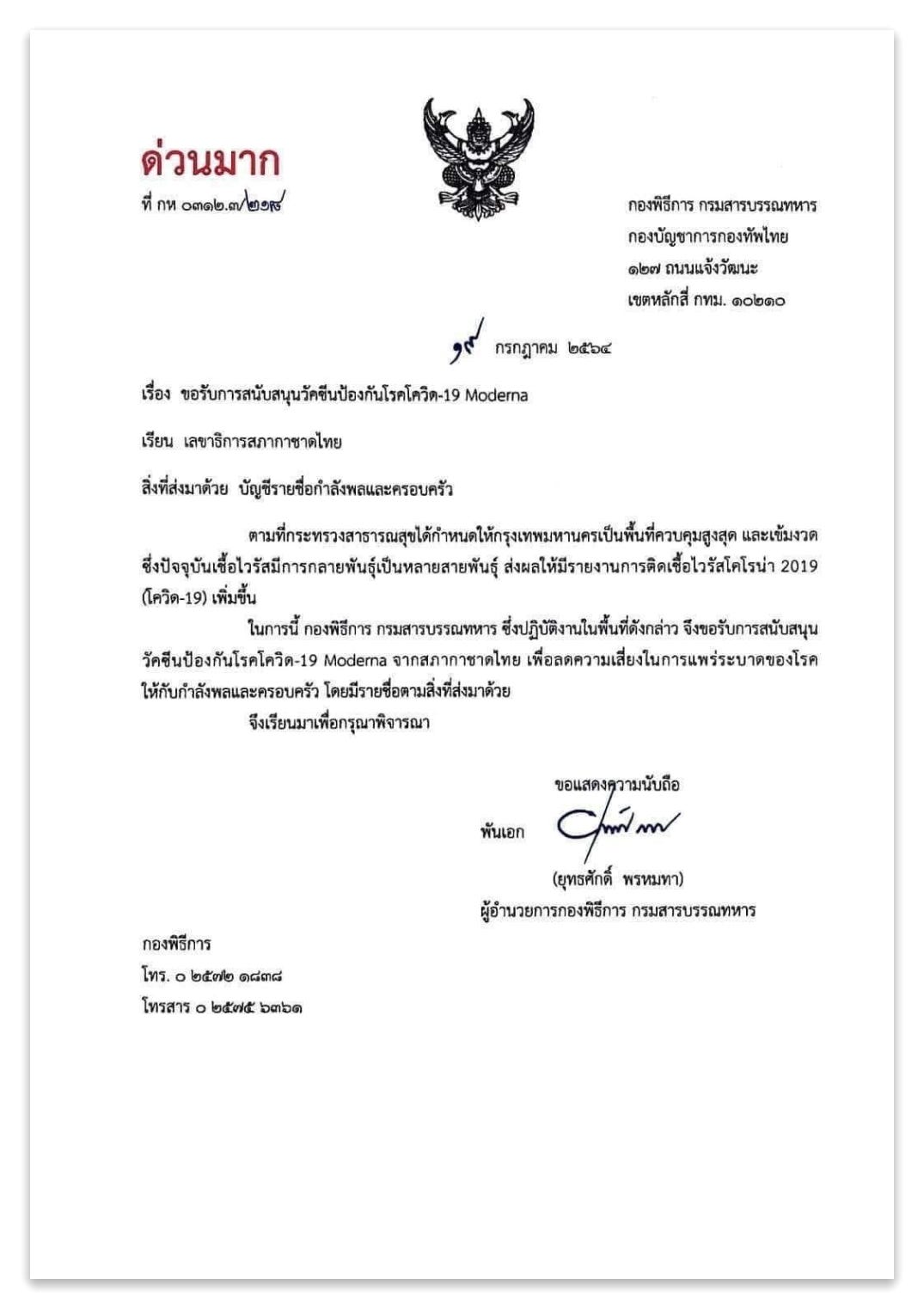
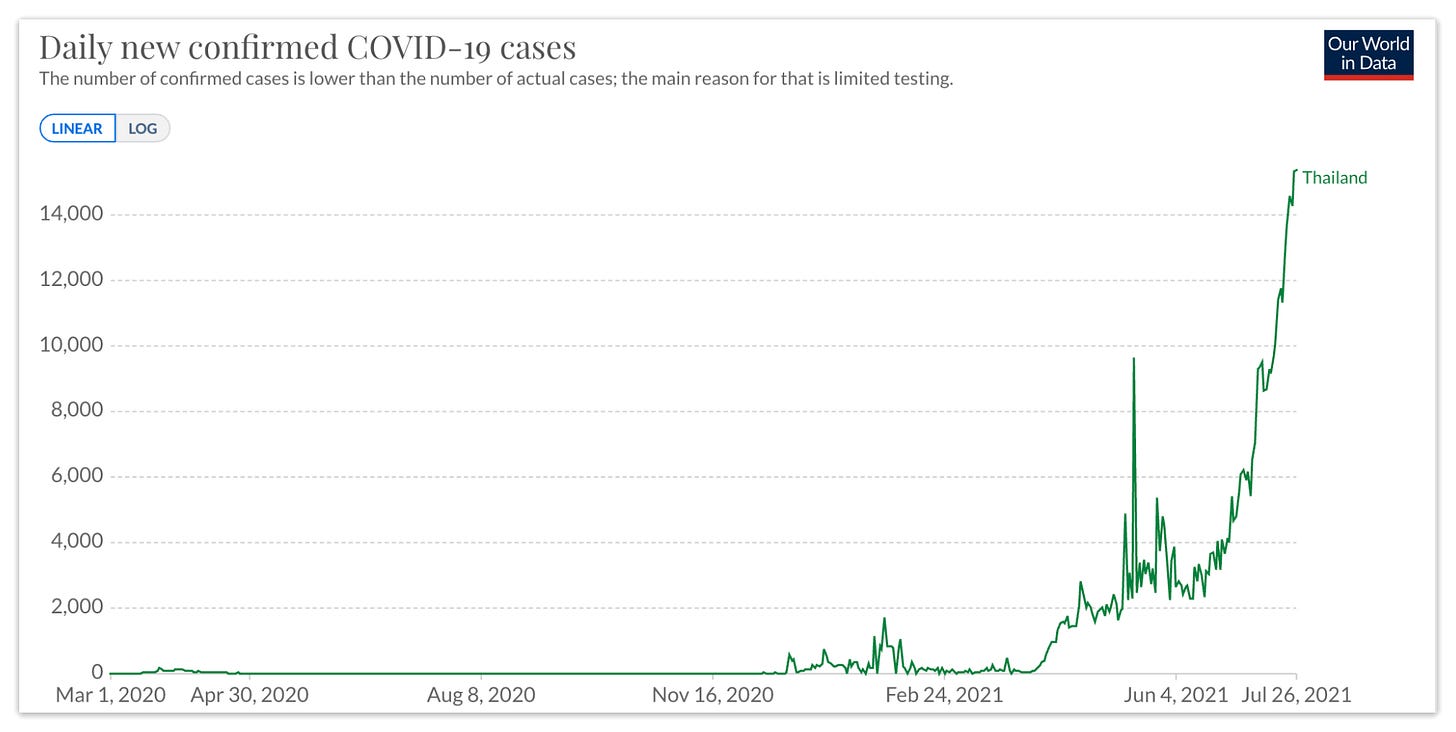
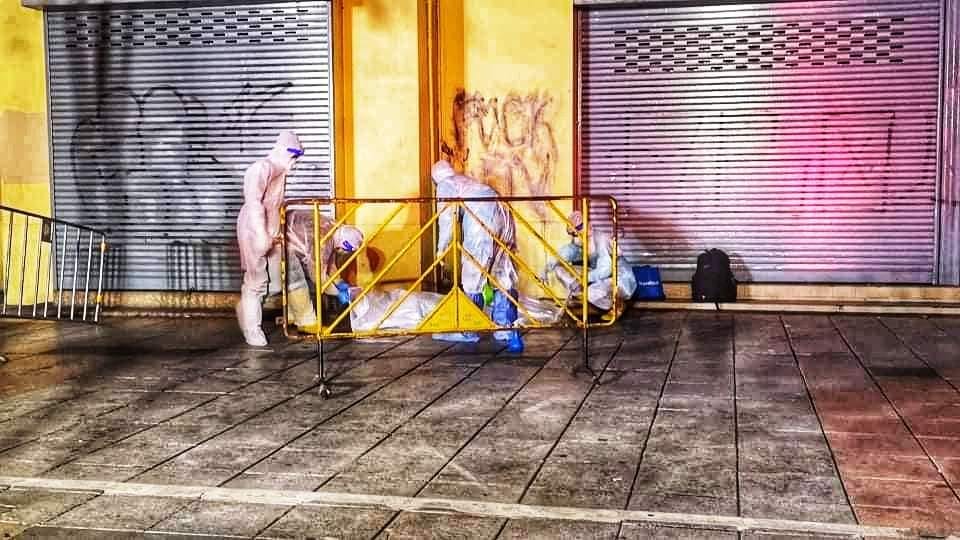
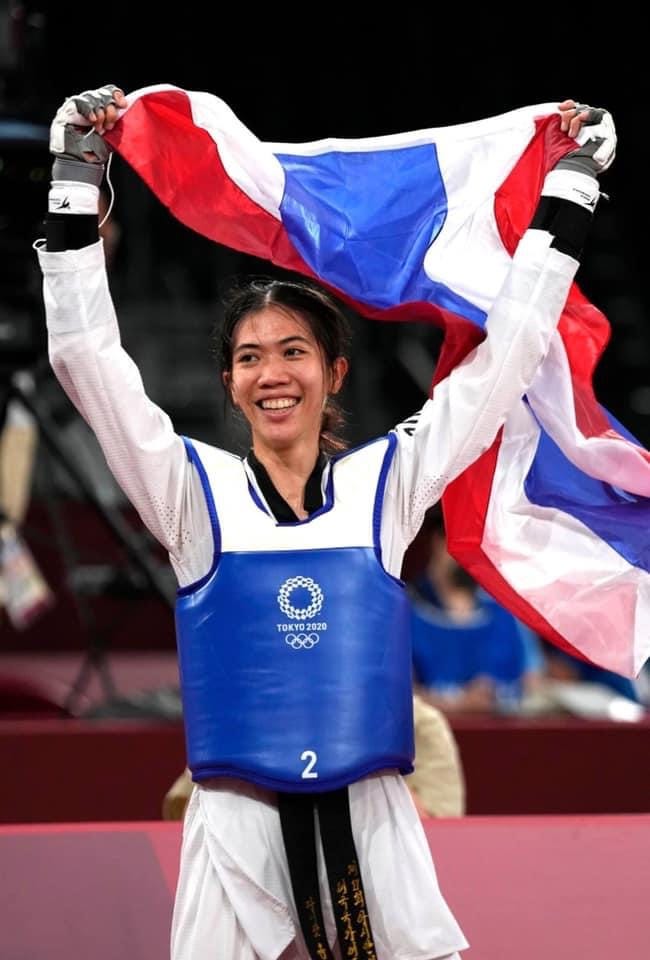
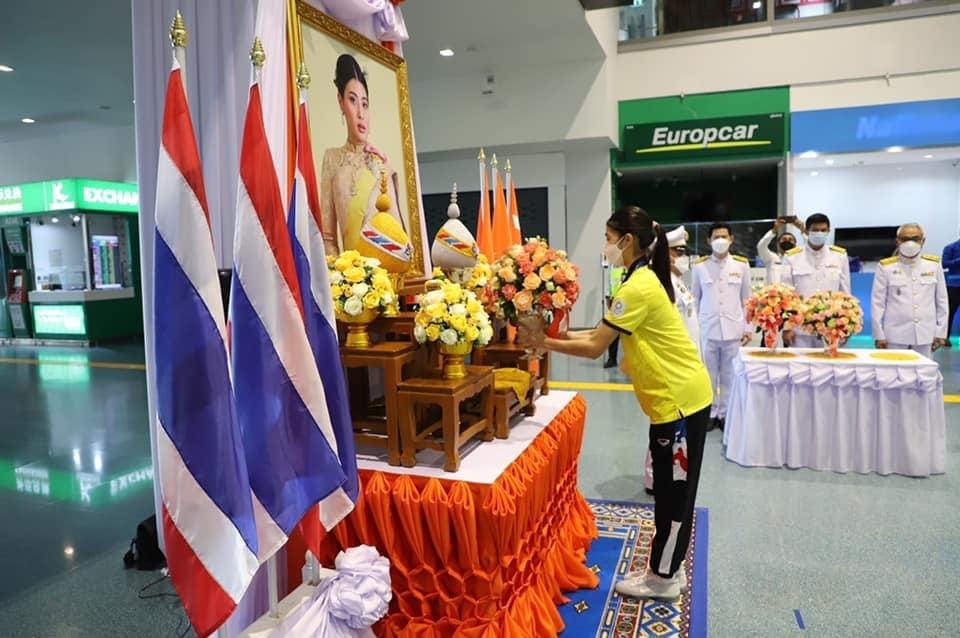

Can you also publish a podcast (or audio) of each post? I want to listen to the posts while driving.